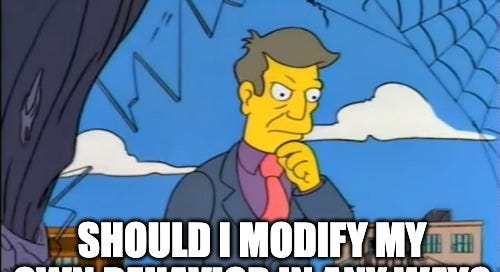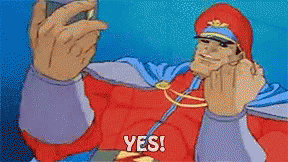I recently deleted the LinkedIn app off of my phone. Please, hold your applause. The decision was triggered by a “LinkedIn News” article that ended up in my feed.
The article in question? “Workers need weight-bias training.”
I’ve always enjoyed a good horror movie, so I couldn’t resist clicking. This was my first mistake.
The second was looking at the curated comments responding to the “news.”
“Obesity isn’t a choice. It’s a medical condition,” said a top commenter who went on to explain how we need more laws in place to eliminate any such bias (perceived or otherwise). I’ll be sure to tell that to my physician friend who specializes in obesity medicine. (A massive growth area in healthcare.)
To be clear, I absolutely sympathize with people that struggle with their weight. As my physician pal explained to me, obesity is typically a symptom of a deeper underlying issue that manifests as an addiction to food. Even people with ostensibly good habits have a difficult time managing their weight. People live sedentary lives, work sedentary jobs, and eat highly processed “food.”
What I take issue with is this idea that people have no control over their own lives. That we need to constantly augment society instead of dealing with the root causes of an ever increasing number of these types of issues (real or imagined).
When I stopped drinking alcohol six years ago, I almost immediately lost 25 pounds. And guess what, people absolutely treated me differently. I’m sure the weight loss was part of it, but I also became a significantly happier, healthier, and more positive person in general.
Imagine if, instead of recognizing that I needed to make changes and acting on it, I instead expected everyone else to modify their behavior and ignore their natural impulses.
I’d basically be the world’s biggest asshole.
I’ve written before about how I stopped following the news. It’s been over seven months now and it remains one of the great decisions I’ve ever made.
Unfortunately, I cannot (yet) live completely as a luddite on account of needing to work and use LinkedIn for my day job as a recruiter. So news does slip in from time to time.
And when it does it just seems increasingly crazy.
Not in the sense that world events are crazy (always have been), but in the framing of everything. When I see one of these increasingly strange articles, I feel like one of those people who left a cult. “I used to believe that?!?”
It’s just nuts. Articles like the aforementioned LinkedIn piece about “the need for weight-bias training” read in such a way that you’d think the average person worked as a Prospect in a Biker Club. Like they walk into the office and get immediately harassed for their shortcomings. Do the people that write these things spend any time in the real world?
Wouldn’t it simply be easier, and more beneficial, to provide workers with actual weight training? As in, literally pumping some iron? Though I suppose this might solve a real problem and require paying fewer consultants.
It’s not something I can necessarily prove, but I am convinced that the near non-stop and instantaneous flow of information that most people consume is making them lose their minds. If you went back as recently as 2009 and told someone “hey man, obesity is a medical condition, you need sensitivity training” they’d tell you those were “fighting words” and start knuckling up. And rightly so!
I’m hardly the first person to say this. In fact, a best selling book in the late ‘90s called “Data Smog” tackled this exact topic. In it, author David Shenk shared a fact that illustrates our information overflow in stark terms:
It is estimated that one weekday edition of today's “New York Times” contains more information than the average person in seventeenth-century England was likely to come across in an entire lifetime.
It’d be one thing if people today were just sitting down and reading a newspaper every morning. At least that requires some level of active engagement. Instead, nearly everyone under the age of 60 takes in an endless feed of increasingly short-form content. Much of it in the form of videos less than a minute long.
It’s like the app makers watched the movie theater scene in A Clockwork Orange and thought “Yes! Yes! This is what we should create!”
A non-stop sensory overload that we are simply not built for. And it has done untold damage.
Almost everyone I know is aware of this and doesn’t like it. But unlike alcohol, unless you are fabulously wealthy you basically need to be online. Just as you need to eat food.
While I understand that losing weight is a mental game in the long run, small steps like simply not keeping junk food in the house can go a long way. We don’t need to consume processed crap, even if Hostess Donettes just really hit the spot sometimes.
I think the same goes for one’s internet diet. It’s not as simple as deleting an app, but it’s a small step in the right direction.







Well said!